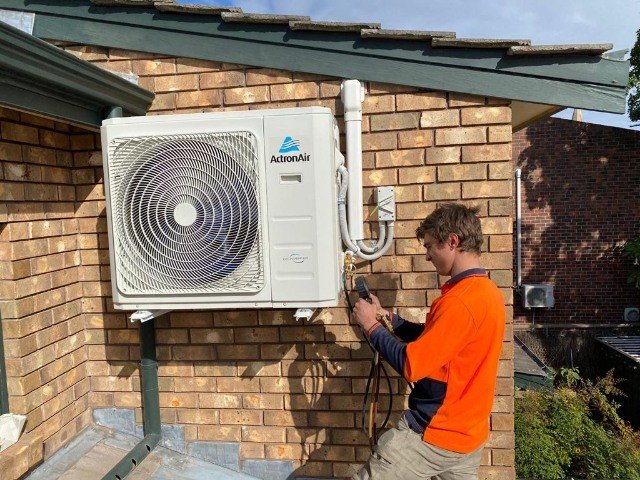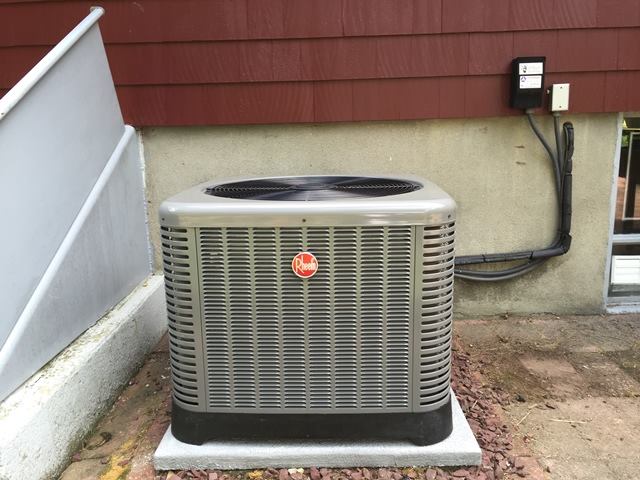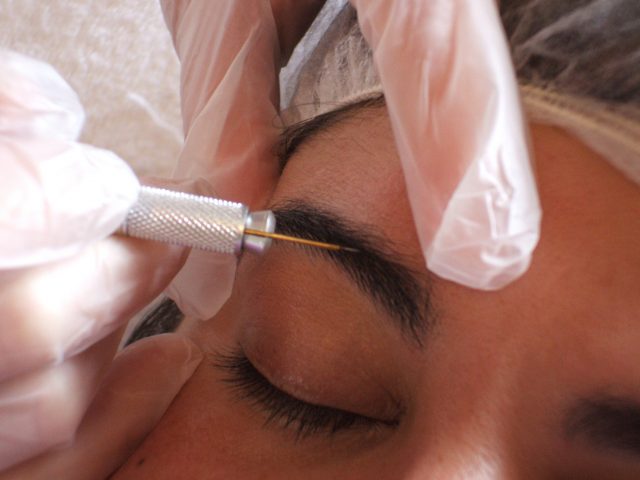
When most people think about their air conditioning (AC), they usually associate it with comfort, especially during hot summer months. However, the benefits of a properly maintained AC system go beyond just keeping your home cool. An often-overlooked advantage of your AC is its ability to improve indoor air quality, which can have a significant impact on your health. Clean air is essential for maintaining good respiratory health, reducing allergens, and improving overall well-being. In this post, we’ll explore the health benefits of clean air and how your air conditioning system can play a crucial role in achieving it.
Why Clean Air Matters for Your Health
The air we breathe is more than just oxygen. It carries pollutants, allergens, and microscopic particles that can affect our bodies in various ways. For individuals with pre-existing conditions like asthma, allergies, or respiratory issues, exposure to poor indoor air quality can lead to a worsening of symptoms. Even for those without chronic conditions, poor air quality can contribute to short-term problems such as fatigue, headaches, dry eyes, and difficulty concentrating.
Indoor air is often more polluted than outdoor air, with common indoor pollutants including dust, pet dander, pollen, mold spores, volatile organic compounds (VOCs), and even viruses or bacteria. These pollutants can accumulate inside our homes, especially in poorly ventilated spaces, leading to a decrease in air quality.
With the average person spending up to 90% of their time indoors, maintaining a clean and healthy indoor environment has never been more important.
How Air Conditioning Contributes to Clean Air
Air conditioners play a central role in controlling the indoor climate. However, when properly maintained, they can also contribute to healthier indoor air by filtering out harmful particles and circulating air efficiently. Here’s how:
1. Filtration of Dust and Particles
Most modern air conditioning systems are equipped with filters that trap dust, dirt, and other particles. These filters prevent contaminants from circulating through the air and can help reduce the buildup of dust on furniture and surfaces. Depending on the type of filter used, AC systems can capture a wide range of particles, including allergens like pollen, mold spores, and pet dander.
High-Efficiency Particulate Air (HEPA) filters, for example, are capable of capturing up to 99.97% of particles as small as 0.3 microns. These filters are particularly effective at removing airborne allergens that can cause respiratory issues and allergic reactions.
2. Reduction of Allergens
Allergens are one of the most common causes of indoor air pollution. Seasonal pollen, dust mites, pet dander, and mold spores are just a few of the allergens that can affect individuals, especially in homes with pets or in humid climates where mold growth is common.
Your AC system can help reduce these allergens by circulating air through its filters, trapping particles before they can settle in your home. By regularly changing or upgrading the filters in your system, you can ensure that your AC is working at its best to remove allergens and keep your air clean.
In addition to improving indoor air quality, maintaining a clean air filter in your AC can help alleviate allergy symptoms like sneezing, itchy eyes, and congestion.
3. Controlling Humidity
Excess humidity can lead to several health problems, including the growth of mold, mildew, and dust mites, all of which can affect your respiratory health. High humidity levels can also contribute to feelings of discomfort and make it harder to breathe.
AC systems help regulate humidity levels by removing excess moisture from the air as they cool it. When air conditioners are set to operate at their optimal levels, they can help maintain humidity at a comfortable level (ideally between 30% and 50%). This not only keeps your home feeling more comfortable but also reduces the conditions that allow allergens and mold to thrive.
4. Improved Ventilation
One of the key benefits of a functioning air conditioning system is that it can improve ventilation within your home. Many modern air conditioners are designed to draw in outdoor air and circulate it inside, replacing stale indoor air with fresh outdoor air. This helps reduce the concentration of pollutants and improves the overall air quality inside.
Regular maintenance of your AC system, such as cleaning ducts and replacing filters, ensures that your system continues to function as an effective air circulator. A well-ventilated home helps prevent the buildup of indoor air pollutants, which can contribute to poor health over time.
5. Air Purification
Some advanced air conditioning systems come with built-in air purifiers or can be upgraded with air-purifying technologies. These systems often use a combination of HEPA filters, UV-C light, and ionizers to not only trap particles but also kill harmful bacteria, viruses, and germs that may be present in the air.
UV-C light, for example, has been shown to effectively deactivate viruses and bacteria, preventing them from spreading and causing illness. When integrated into an AC system, UV-C light can contribute to healthier air in your home by neutralizing harmful pathogens that might otherwise linger in the air.
Ionizers, on the other hand, release negatively charged ions that attach to positively charged particles like dust, smoke, and pollen. These ions cause the particles to stick to surfaces or clump together, making it easier for the AC system’s filter to capture them.

How to Optimize Your AC for Better Indoor Air Quality
To fully harness the health benefits of clean air provided by your AC system, regular maintenance and some simple adjustments are necessary:
- Replace Filters Regularly: Air filters can get clogged with dust and debris, reducing their ability to trap particles effectively. Make sure to replace your AC filter every 1-3 months, or more frequently if you have pets or live in a particularly dusty environment.
- Use High-Quality Filters: Not all filters are created equal. If you suffer from allergies or asthma, consider upgrading to a HEPA filter or a high-MERV (Minimum Efficiency Reporting Value) filter, which are better at trapping small particles.
- Clean and Maintain the Coils and Ducts: The evaporator and condenser coils in your AC should be cleaned regularly to prevent the buildup of dirt and mold. Having your ducts cleaned periodically will also prevent dust and debris from circulating through your home.
- Invest in an Air Purifier: If you want an extra layer of protection, consider investing in a standalone air purifier. These devices are designed to filter the air more thoroughly than your standard AC system and can help eliminate germs, bacteria, and odors.
- Control Humidity: Keep an eye on the humidity levels in your home. If your AC isn’t effectively controlling humidity, you may want to consider using a dehumidifier, especially in areas that are prone to high humidity, such as basements.
Conclusion
The health benefits of clean air are numerous, from reducing allergy symptoms to improving overall respiratory health. Your air conditioning system can play a vital role in achieving clean, healthy indoor air by filtering out pollutants, controlling humidity, and improving ventilation. By maintaining your AC system and investing in high-quality filters and air-purifying technologies, you can create a more comfortable and healthier living environment for yourself and your family. Regular aircon servicing Sin Ming ensures that your system is running efficiently, helping to keep the air clean and free from contaminants. Don’t just think of your AC as a cooling system—think of it as a tool for better health and well-being.









